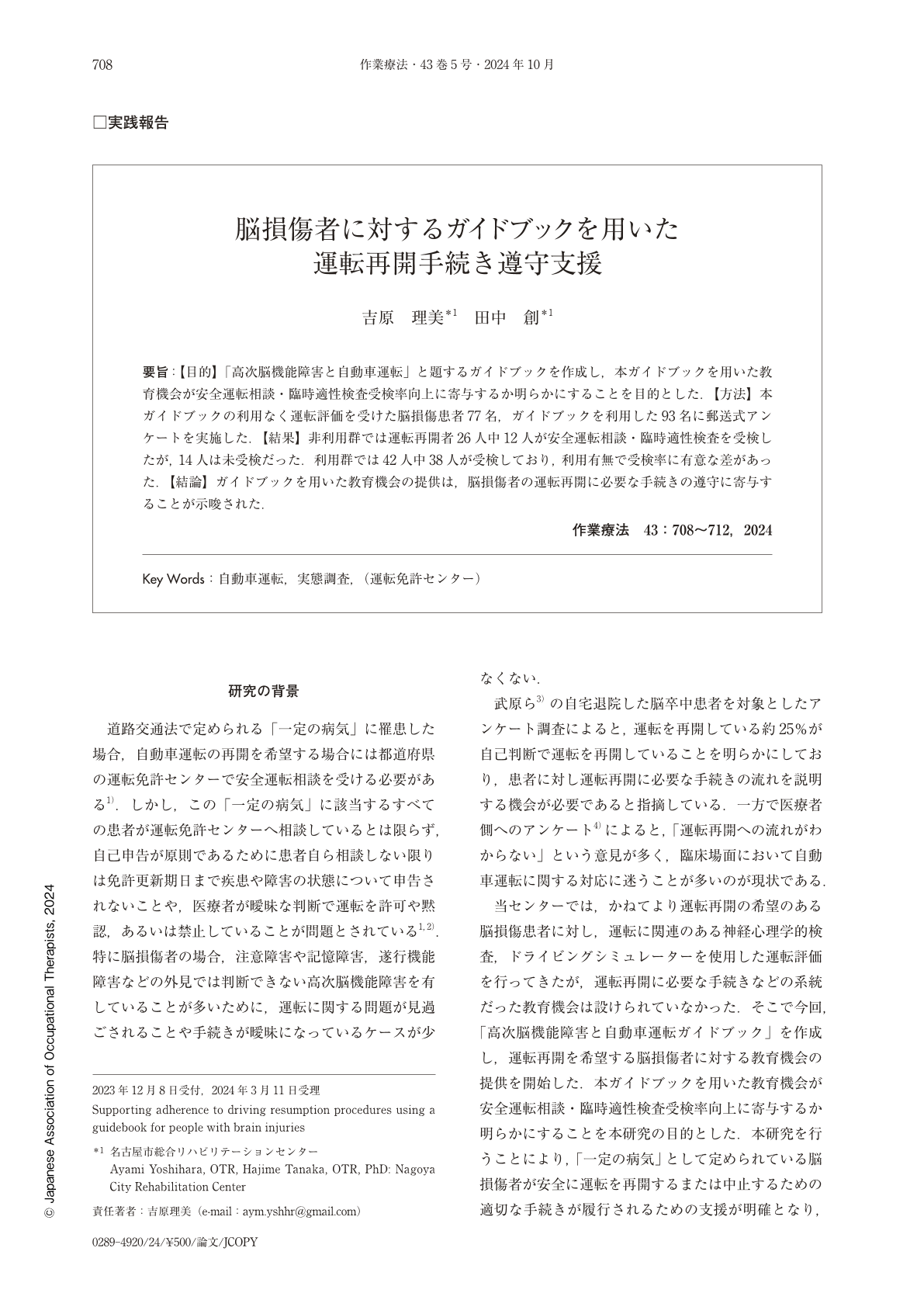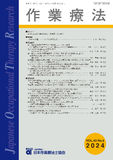Japanese
English
- 販売していません
- Abstract 文献概要
- 1ページ目 Look Inside
- 参考文献 Reference
- サイト内被引用 Cited by
要旨:【目的】「高次脳機能障害と自動車運転」と題するガイドブックを作成し,本ガイドブックを用いた教育機会が安全運転相談・臨時適性検査受検率向上に寄与するか明らかにすることを目的とした.【方法】本ガイドブックの利用なく運転評価を受けた脳損傷患者77名,ガイドブックを利用した93名に郵送式アンケートを実施した.【結果】非利用群では運転再開者26人中12人が安全運転相談・臨時適性検査を受検したが,14人は未受検だった.利用群では42人中38人が受検しており,利用有無で受検率に有意な差があった.【結論】ガイドブックを用いた教育機会の提供は,脳損傷者の運転再開に必要な手続きの遵守に寄与することが示唆された.
Brain injury can result in physical and cognitive impairments affecting an individual's ability to drive. Individuals who resume driving after a Brain injury often neglect the mandatory reporting to the Driver's License Center. We developed an informative guidebook “Cognitive Dysfunction and Driving,” and investigated whether the distribution of this guidebook to patients with Brain injury affected the rates of reporting to the Driver's License Center. A questionnaire was mailed to two sets of patients: 77 patients with Brain injury who had undergone driving evaluation, and 93 patients after the guidebook was used. Before the guidebook was used, 12 of the 26 reported to the Driver's License Center, while 14 did not. After the guidebook was implemented, 38 of the 42 reported to the Driver's License Center, while only 4 did not, indicating a disparity in reporting rates. Offering a comprehensive guidebook to individuals with Brain injury and explaining the specific steps to resume driving can ensure compliance with the mandatory reporting procedures.

Copyright © 2024, Japanese Association of Occupational Therapists. All rights reserved.


